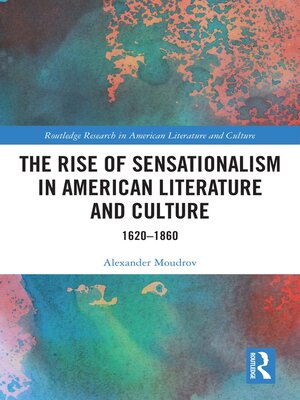The Rise of Sensationalism in American Literature and Culture
ebook ∣ 1620-1860 · Routledge Research in American Literature and Culture
By Alexander Moudrov

Sign up to save your library
With an OverDrive account, you can save your favorite libraries for at-a-glance information about availability. Find out more about OverDrive accounts.
Find this title in Libby, the library reading app by OverDrive.



Search for a digital library with this title
Title found at these libraries:
| Library Name | Distance |
|---|---|
| Loading... |
The Rise of Sensationalism in American Literature and Culture: 1620‑1860 argues that the rise of the American tradition of sensationalism can be better understood in the transatlantic context. Early American writers were unquestionably influenced by various forms of European sensationalism. At the same time, they often felt compelled to distance themselves from their European counterparts whom they accused of promoting voyeuristic indulgence in the scandalous and demoralizing their readers. American writers typically claimed that they turned to the scandalous only to promote legitimate religious, political, and social causes. In this respect, their approach reflected the Puritan tradition of didactic sensationalism in which provocative themes (religious dissent, crime, and sex scandals) were routinely exploited in ostensibly well‑intentioned publications (sermons, crime reports, and journalism). What is remarkable about the antebellum period is that it saw a dramatic transformation of American sensationalist literature as popular writers started to incorporate elements of European sensationalism while trying to preserve the didactic conventions of their predecessors.







